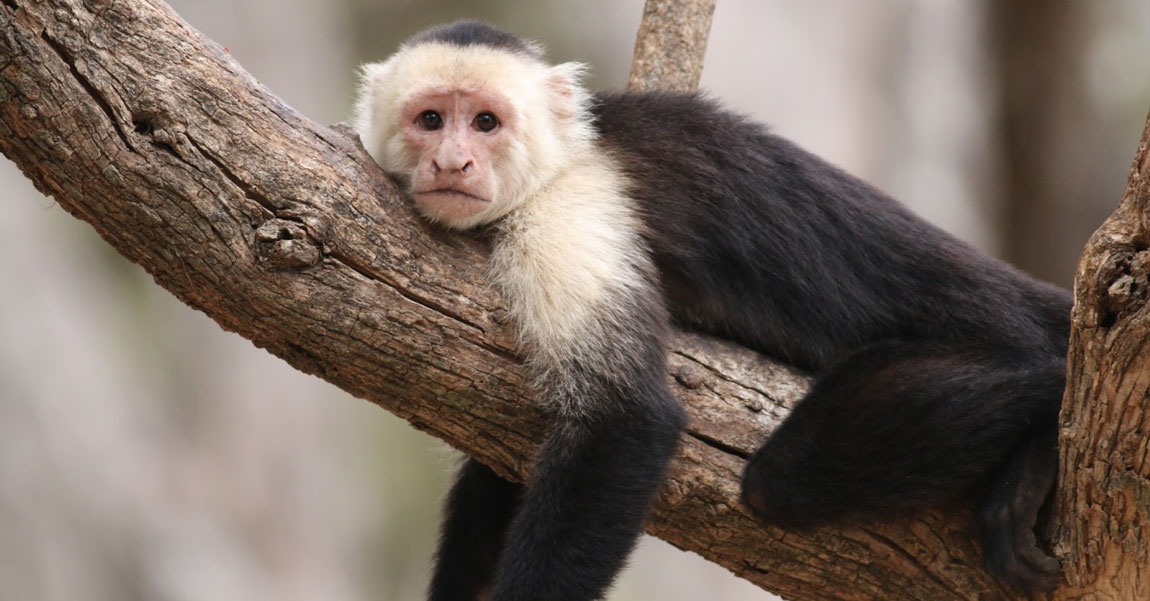Reasons for showing aggression
Aggressive behaviour is a part of being a monkey. it is a natural behaviour and, even if you don't notice it in your baby monkey, there will come a time when they try to assert themselves and challenge you. Keeping an eye on your monkey, and learning to identify the different forms of aggression that they show, is one of the best ways to avoid any accidental bites or attacks.
Your monkey may be more aggressive for multiple reasons. These include emotional triggers i.e; When your baby is feeling angry or is trying to assert dominance.
Emotional Aggression is a very reactive/impulsive type, and the main intention is usually to harm someone. Be it someone who has annoyed them, or even just a new person who they have an instant dislike towards.
Another type of aggression that you may come across is a lot easier to notice. Territorial Agression is simply your monkey laying claim to a certain area. This form of aggressive behaviour is their natural reaction to protecting their space and family.
Hormonal Aggression can become evident in your monkey if there is an abundance of hormones in the air. Your female may be exuding pheremones that cause other monkeys to show more aggressive behaviour, or, if there are too many males, an abundance of testosterone can lead to the same problem.
Reasons for Biting.
Always remember that, no matter what, primates are still wild animals and biting is a natural behaviour for them. It isn't a case of "if" you will get bitten, as a monkey parent, but "when" and "where". Monkeys will bite you anywhere they can find a hold, but will usually go for the extremeties, i.e: Nose, Ears and Fingers. There are many different types of bites, some of which we have to allow, as monkeys will always be monkeys. As you look after them, you will come to notice the difference between Exploratory or Play biting, and more serious bites, such as repeated snap bites and a bite that is meant to be harmful. This latter type can be very extreme and dangerous. Being able to identify the type of bite is very important, and can only be learnt by spending time with your monkey.
Dealing with aggression and bites
As mentioned before, being able to Identify the type of aggressive behaviour that your monkey is exhibiting goes a long way in being able to deal with the situation. Once you have identified the trigger of the aggression, you can do what is necessary to prevent it from happening again.
It is EXTREMELY improtant that you start training your baby monkey to see you as the Alpha of the troop from a very young age. If your baby is beginning to bite you, you Have to assert your dominance, or as your baby gets older, the behaviour will become habitual and you will not be able to stop it.
Wrap your hand firmly around the baby, hold them on their backs and tell them "No" repeatedly. It is important that your baby sees you as the bigger primate and that you make sure to be consistent with how you treat bad behaviour. Showing your teeth to your baby, while they are defenceless in your hand, is a good warning that you may bite them back and helps to show dominance as the Alpha.
If they spend most of their time out of their enclosure, then giving your monkey a "Time-Out" and putting them into their enclosure when you are mad at them is also a good way to make them understand if they have done something wrong.
Monkey bites can be very bad, but in spite of a bite (however bad it may be), you Must stand up to your monkey immediately. Your monkey can sense if you are afraid, and may even be able to smell it. The same is true of anger. Make sure that you show anger and always look them straight in the eyes, while holding them, whenever you reprimand them. NEVER resort to physically abusing your monkey. This can lead to serious trust issues, and may lead to more cases of them fighting back.
Children and Monkeys
It is very important that you Never leave children alone with a monkey. Size and dominance play an extremely important, and natural, role for a primate. Children, being weaker in nature than adults, are prime targets for being bitten or attacked. A child is also naturally afraid of something that they have not seen before, and primates will play on that sense of fear until they have made the child back down submissively.
If you have children, it is essential that your monkey learns from a young age that your children still rank higher than them in dominance.
Always remember that spending quality time with your monkey and developing a strong bond between you, while they are young, will ALWAYS be the best way to avoid bites and aggressive behaviour. Primates of any kind will still always have a wild streak, as well as being very active, but proper care in the formative months of their lives can go a long way in making sure that you and your monkey have a good and loving relationship.

